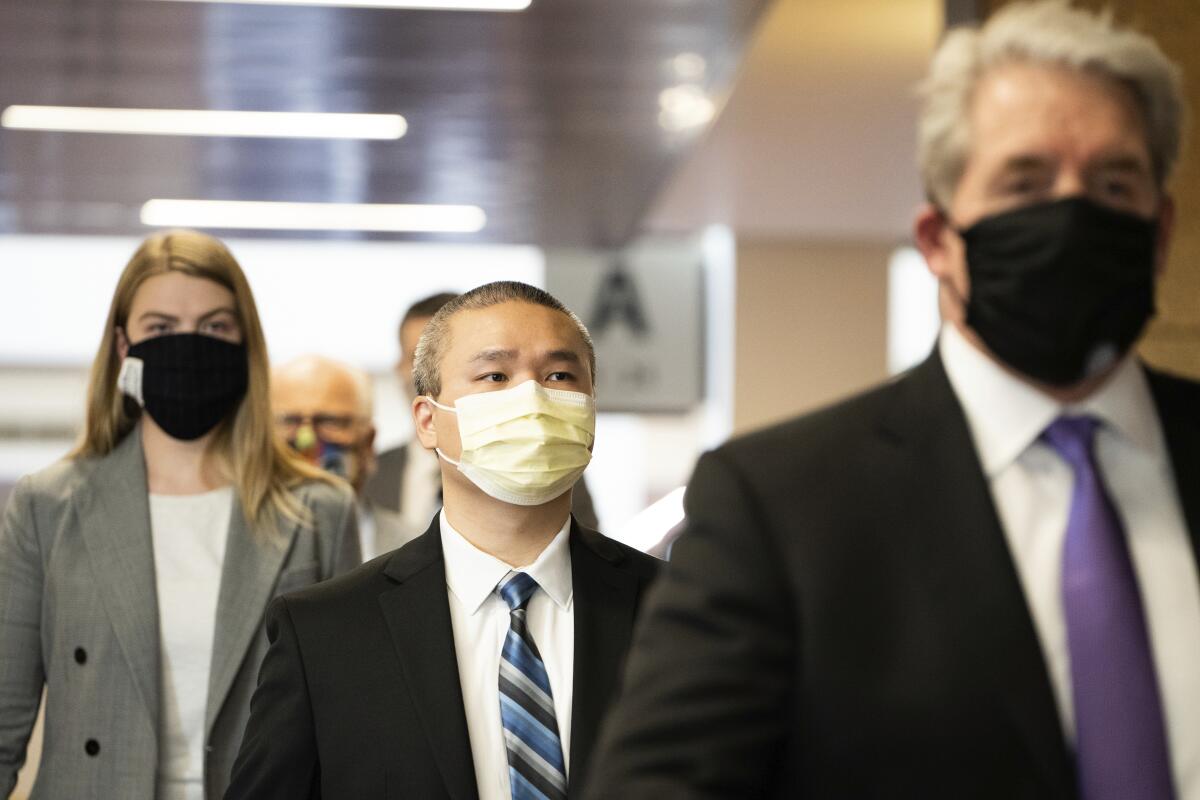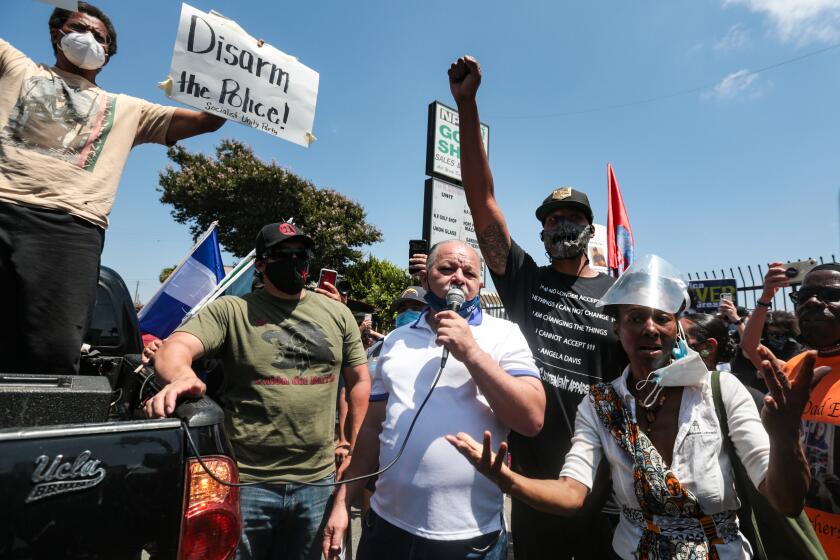Minnesota judge lifts gag order in George Floyd case

- Share via
MINNEAPOLIS — A Minnesota judge on Tuesday lifted a gag order in the criminal case against four former police officers charged in death of George Floyd, but said he would take under advisement a news media coalition’s request to make body camera footage more widely available.
In announcing his ruling, Hennepin County District Judge Peter Cahill said he agreed with defense attorneys’ arguments that a gag order would be unfair to their clients and limit their ability to defend against negative publicity.
Cahill also said the gag order wasn’t working, adding that certain parties were attempting to “tiptoe around the order,” and some media outlets spoke to anonymous sources. The judge said attorneys would still be subject to Minnesota court rules relating to pretrial publicity and professional conduct.
Also on Tuesday, Cahill ruled that he would not hold the lead prosecutor in the case, state Atty. Gen. Keith Ellison, in contempt of court as two defense attorneys requested. Cahill determined that a statement Ellison made when he announced that additional attorneys would be assisting the prosecution was innocuous and did not violate the gag order.
Floyd, a Black man who was handcuffed, died May 25 after Derek Chauvin, a white police officer, pressed his knee against Floyd’s neck for nearly nine minutes as Floyd said repeatedly that he couldn’t breathe. Chauvin is charged with second-degree murder, third-degree murder and manslaughter. Three other officers who were at the scene, Tou Thao, Thomas Lane and J. Alexander Kueng, are charged with aiding and abetting both second-degree murder and manslaughter. All four officers were fired.
Police body camera videos were filed with the court this month by Lane’s attorney, Earl Gray, as part of a request to have Lane’s case dismissed. Gray said he wanted the videos to be made public — prompting Cahill to issue the gag order barring attorneys and parties from discussing the case.
Cahill made the videos available for in-person, by-appointment viewing only.
Protests in the wake of the killing of George Floyd – a 46-year-old Black man who died after a Minneapolis police officer knelt on his neck while he was begging for air – have energized efforts to draw attention to deaths of Latinos by police.
Leita Walker, an attorney for the news media coalition that includes the Associated Press, and Gray argued Tuesday for wider dissemination of the body camera video. Walker said making the footage widely available would not further harm the court’s effort to impanel a jury because the public already has access to bystander video, transcripts of the footage and reporting by journalists who watched the videos.
“This case has international interest. To expect every member of the media to fly to Minneapolis and schedule an appointment ... during quarantine is a de facto sealing,” Walker told the judge.
Speaking to reporters after the hearing, Walker said: “The media coalition’s view is that there’s a lot of stuff already out there and the public is entitled to a complete picture. ... The media can only report a full story if it’s able to see everything and talk to both sides.”
Gray argued in court that the news media has been unfair to his client, and body camera footage would clear up some misrepresentations. He said the footage shows Floyd stuffed counterfeit bills in his car seat and put drugs in his mouth. Regarding the drugs, Gray said: “That’s probably why he died.”
Two AP writers who viewed the body camera footage at the courthouse last week did not see Floyd put drugs in his mouth, as Gray described.
Assistant Atty. Gen. Matthew Frank argued for the prosecution that releasing the body camera footage could have a negative impact on impaneling an impartial jury.
The issue of whether audio and visual coverage of the trial will be allowed was also discussed at the hearing. The defendants’ attorneys made no objection. Frank said prosecutors will weigh in on that issue by day’s end Monday.
More to Read
Sign up for Essential California
The most important California stories and recommendations in your inbox every morning.
You may occasionally receive promotional content from the Los Angeles Times.














